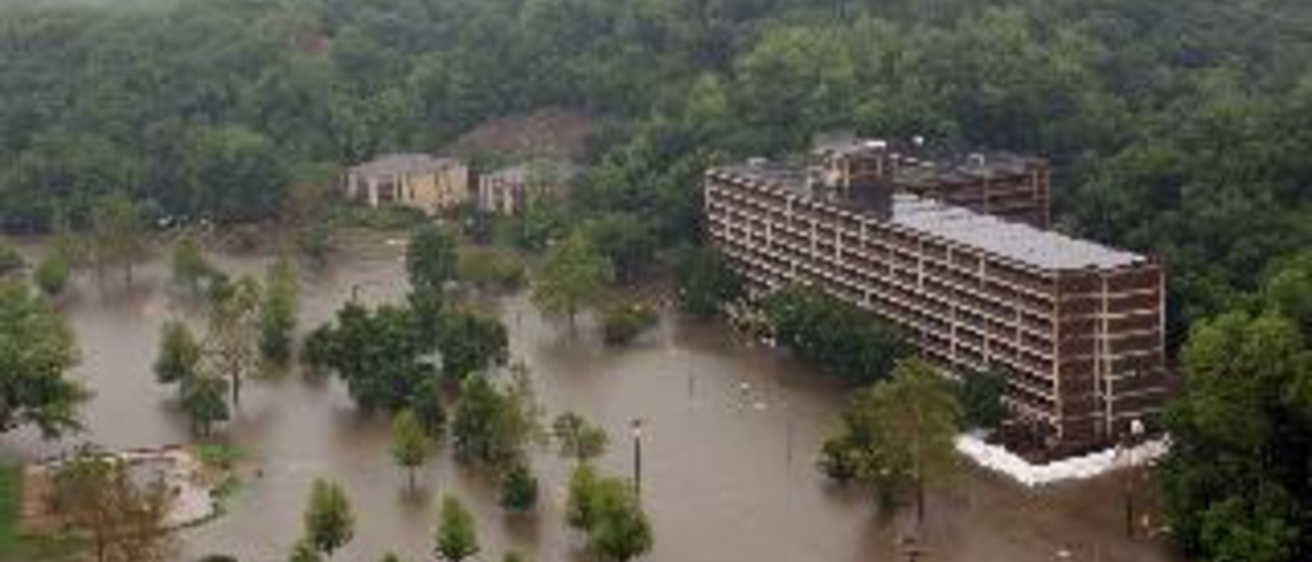By Jami Brinton
KCRG-TV News
IOWA CITY - Predictions of rising flood waters did not work during last year's flood, missing just how high the water would get. Now, a new University of Iowa research effort could give more warning for future floods.
Monday, the University of Iowa marked one year since the high water mark of last year's devastating flood. It was a fitting time for the University to announce federal funding to research a new flood warning system to predict similar record floods.
Imagine knowing exactly when the flood waters would hit your neighborhood and how high the waters might rise. That's the kind of information that would help thousands of Eastern Iowans get ready for a future flood.
Last year, no one really knew when flooding would hit eastern Iowa. Nor did they know how high waterways like the Iowa River would rise. Day after day, thousands waited and watched to see if the water would reach their home or business. And, day after day, the information was sketchy at best.
"Having that stair-stepping resulted in a lack of public confidence in the forecast because it kept going up and didn't allow people to really plan as they could have," explained Larry Weber, IIHR Director. The new University of Iowa flood forecasting project would place gauges into smaller streams that feed into larger rivers, like the Iowa and Cedar. "As rainfall lands on surfaces it flows into our streams and rivers and flows out of the basins exactly how high the flood will occur and what time it will occur," said Weber.
This information is critical when it comes to preparing homes and businesses for rising rivers. "We learned last year every hour matters," said Professor Witold Krajewski, University of Iowa engineering professor and and IIHR researcher. "Giving people a few more hours and sometime it may be a couple more days it would really be helpful if something bad were to happen again."
It's one way for U of I researchers are taking learning from last year's natural disaster so history might not repeat itself.
"These studies will not only lead to greater understanding of flood-related phenomena but also help to alleviate effects of future floods here and throughout the world," said University of Iowa President Sally Mason.
U-I researchers tell us this flood warning system is in the beginning phases. If their research is successful, this would be the first-ever real-time flood prediction system of its kind in Eastern Iowa.
